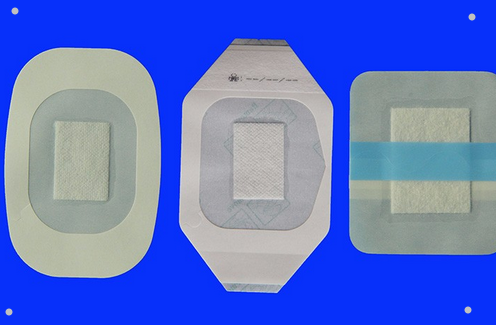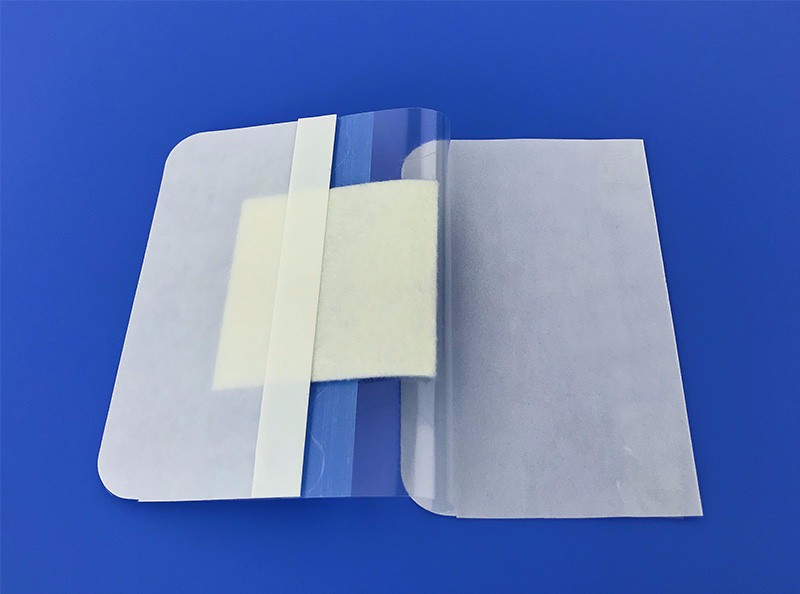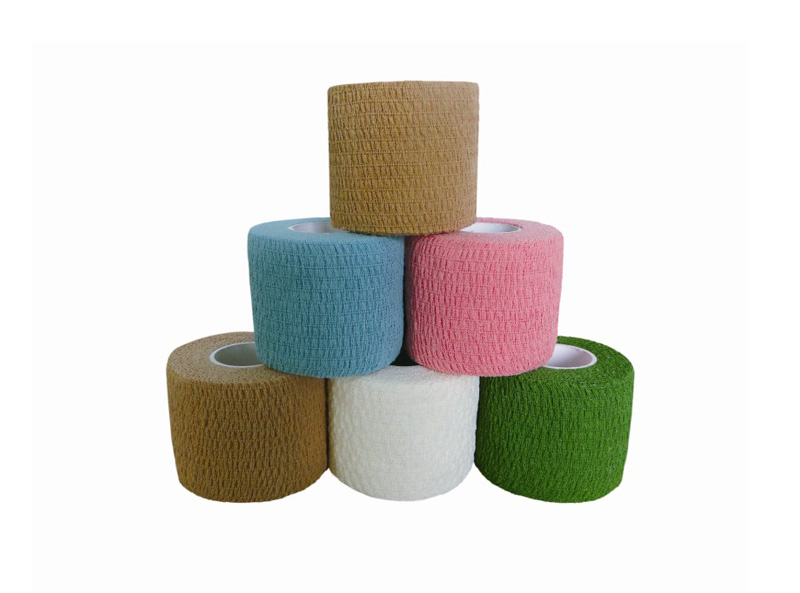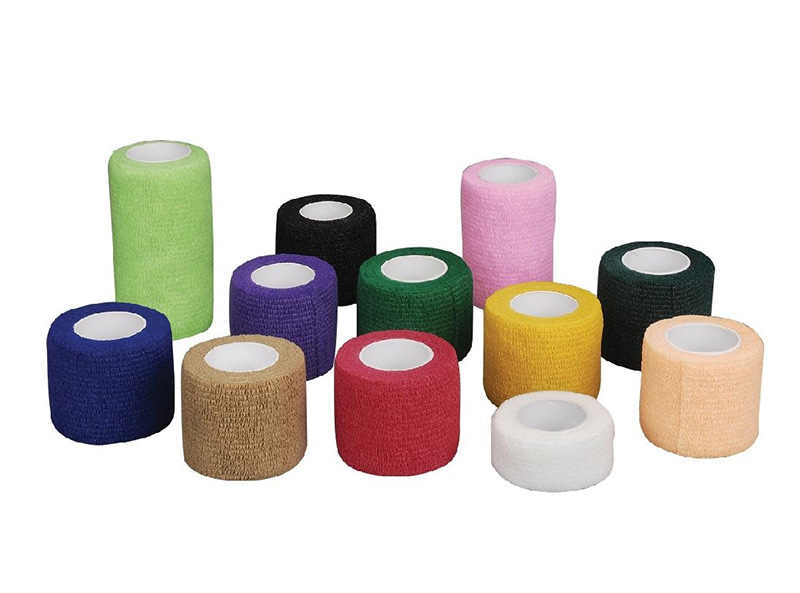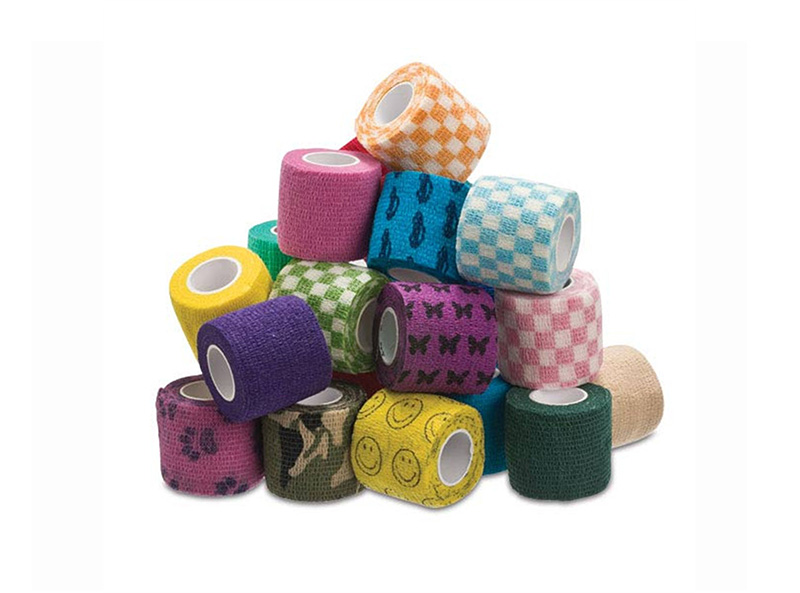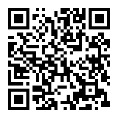Use of Physio Therapy Kinesiology Tape
 Jul 27, 2021|
Jul 27, 2021| View:1091
View:1091Internal composition of physio therapy kinesiology tape
The physio therapy kinesiology tape consists of a three-layer structure, which can be imagined as a sandwich toast coated with jam.
The outermost layer is breathable and elastic cotton cloth, which can be stretched within a certain limit, up to 130-150%. The middle layer is usually acrylic adhesive, and the adhesive surface is distributed in the shape of water ripple (the width, spacing, wavelength and amplitude of ripple are specified). Ripple is also the key technology officially claimed to make the adhesive play a role. The glue coated on the qualified adhesive cloth shall pass the biocompatibility test. Generally, it is not easy to cause skin allergy and does not contain drug components. The innermost layer is back Pro paper, which will be torn off when in use.
These three layers have great origins, which is also the most direct factor affecting the quality of physio therapy kinesiology tape.
The physio therapy kinesiology tape must be used correctly:
1. Before use, be sure to stretch the physio therapy kinesiology tape and let it stretch normally to ensure that it can completely adhere to the skin surface;
2. carefully clean the parts that need to be pasted. Grease and emulsion will result in inadequate muscle attachability. If there is more hair on the muscle sticking part, it is recommended to remove and paste again.
3. If you want to post it before exercise, please remember to post it 1 hour before exercise, so as to have the best effect.
Cutting method of physio therapy kinesiology tape
In general, the physio therapy kinesiology tape needs to be cut according to different anatomical characteristics to make it work accurately. The general cutting method is as follows:
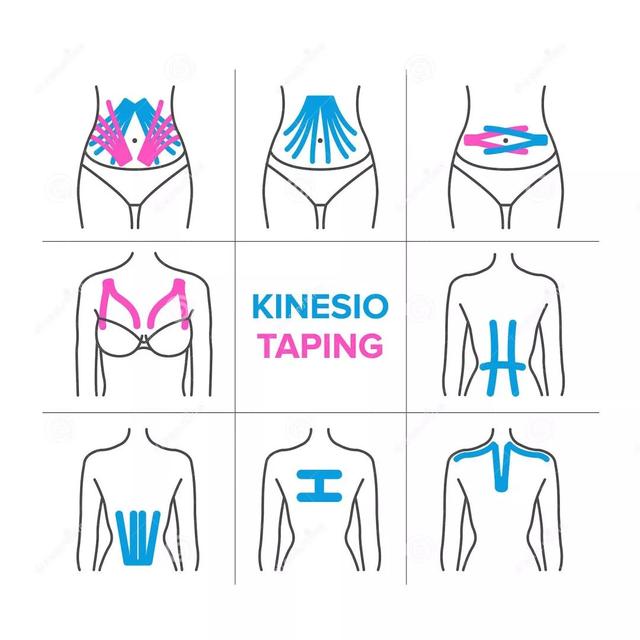
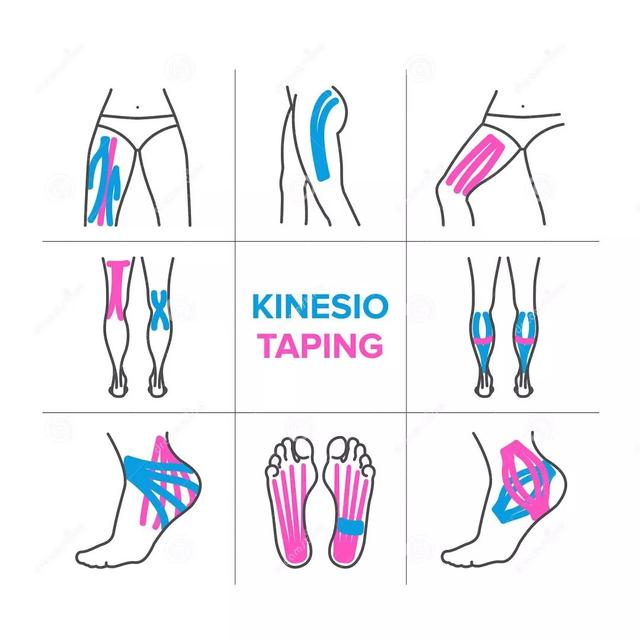
Application method of physio therapy kinesiology tape:
1. Tear off the backing paper at one end and try not to touch the glue on the cloth;
2. Stick one end firmly, do not stretch it, and sweep the cloth five times;
3. Stretch the cloth in the middle section to the required length and stick it;
4. Sweep the whole cloth five times to make it stable;
5. The head and tail shall not be elongated, otherwise the cloth is easy to roll up.
6. The specific methods for treating different injuries are as follows:

